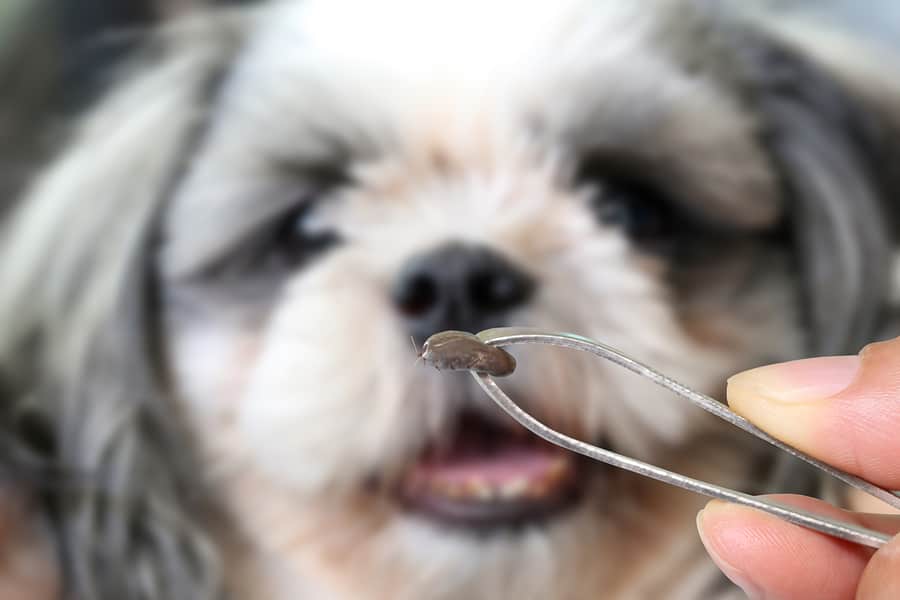READY TO GET STARTED?
REQUEST A FREE ESTIMATE
Fill out the form below or call (888) 466-7849 for a free, no-obligation estimate.

The weather is warming up, many of us are starting to spend time outside with our friends, family, and pets. Enjoying the outdoors has its benefits but also the disadvantage of coming across nuisance pests! Two common spring pests that can be harmful to both humans and pets are ticks and fleas. These insects will typically latch onto us or our animals, making their way inside homes, bringing the risk of infestation.
Fleas
Fleas tend to be dark red or brown, with their size varying between ½” to 1/6” in length. Fleas have a flat body, two antennae, and six legs. These pests will bite both humans and pets such as dogs and cats. Fleas have the incredible ability to jump to great heights, sometimes up to eight feet high! Jumping allows them to hitchhike into homes while hidden in pet fur. Dogs and cats will often get infested with fleas through contact with other animals or spending time outdoors. Once fleas have latched onto an animal host, they tend to stay there and then will easily transfer over to furniture or other animals. Fleas can be a health risk as their saliva is known to cause anemia, dermatitis, and facilitate and transfer tapeworms.
Ticks
There are two categories when identifying ticks: soft ticks and hard ticks. The soft tick will feed on bats and birds while the hard tick will feed on humans, pets, and nuisance wildlife. People and animals are likely to encounter ticks during the warmer months. Ticks can pose several health threats to humans and animals as they can transmit serious diseases such as Lyme disease and “tick paralysis.” Some tick species, such as the American Dog Tick, prefer to attach and feed on domestic dogs, which in turn allows them to sneak into our homes. When ticks feed, they can grow up to four times in size when engorged with blood, making them much easier to spot.
Controlling fleas and ticks can sometimes feel like an impossible task, especially if you have animals. If you suspect that you have a flea and tick problem, consider calling your local professional pest company who can thoroughly inspect your entire property and provide you with a treatment and prevention plan.